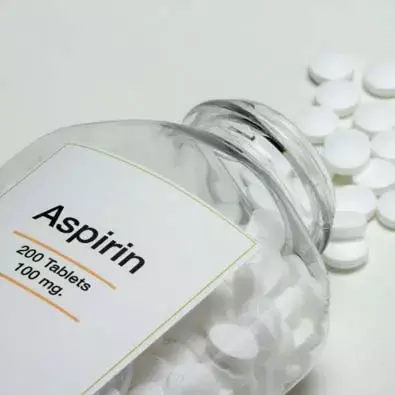- Home
- Medical news & Guidelines
- Anesthesiology
- Cardiology and CTVS
- Critical Care
- Dentistry
- Dermatology
- Diabetes and Endocrinology
- ENT
- Gastroenterology
- Medicine
- Nephrology
- Neurology
- Obstretics-Gynaecology
- Oncology
- Ophthalmology
- Orthopaedics
- Pediatrics-Neonatology
- Psychiatry
- Pulmonology
- Radiology
- Surgery
- Urology
- Laboratory Medicine
- Diet
- Nursing
- Paramedical
- Physiotherapy
- Health news
- Fact Check
- Bone Health Fact Check
- Brain Health Fact Check
- Cancer Related Fact Check
- Child Care Fact Check
- Dental and oral health fact check
- Diabetes and metabolic health fact check
- Diet and Nutrition Fact Check
- Eye and ENT Care Fact Check
- Fitness fact check
- Gut health fact check
- Heart health fact check
- Kidney health fact check
- Medical education fact check
- Men's health fact check
- Respiratory fact check
- Skin and hair care fact check
- Vaccine and Immunization fact check
- Women's health fact check
- AYUSH
- State News
- Andaman and Nicobar Islands
- Andhra Pradesh
- Arunachal Pradesh
- Assam
- Bihar
- Chandigarh
- Chattisgarh
- Dadra and Nagar Haveli
- Daman and Diu
- Delhi
- Goa
- Gujarat
- Haryana
- Himachal Pradesh
- Jammu & Kashmir
- Jharkhand
- Karnataka
- Kerala
- Ladakh
- Lakshadweep
- Madhya Pradesh
- Maharashtra
- Manipur
- Meghalaya
- Mizoram
- Nagaland
- Odisha
- Puducherry
- Punjab
- Rajasthan
- Sikkim
- Tamil Nadu
- Telangana
- Tripura
- Uttar Pradesh
- Uttrakhand
- West Bengal
- Medical Education
- Industry
USPSTF releases draft recommendations on aspirin use in primary CVD prevention

DALLAS, Tuesday, October 12, 2021 — The U.S. Preventive Services Task Force (USPSTF) has released draft recommendations on aspirin therapy for the primary prevention of cardiovascular disease in adults.
The draft recommendations are posted for public comment until November 8, 2021 and will be reviewed by the USPSTF for final decision. USPTSF is an independent, volunteer panel of medical experts focused on improving the health of people nationwide by making evidence-based recommendations on effective ways to prevent disease and prolong life.
The following statement reflects the views of the American Heart Association/American Stroke Association.
According to the Association's volunteer President Donald M. Lloyd-Jones, M.D., Sc.M., FAHA, "As detailed in the American College of Cardiology/American Heart Association's 2019 primary prevention recommendations, recent large trials indicate that, in the current environment, the overall benefit of aspirin is small -- in most adults the benefit of protection against heart attacks and strokes is offset by the potential risk of bleeding caused by aspirin. As a result, aspirin should be used rarely to help prevent heart attacks and stroke among adults ages 40-70 without known cardiovascular disease.
"These recommendations do not not apply to people who have had a heart attack or stroke, or have a stent in an artery – those patients should remain on aspirin as prescribed by their doctor. But in adults without known cardiovascular disease, we continue to urge clinicians to be very selective when prescribing aspirin. Aspirin should be limited to only those adults at the highest risk for cardiovascular disease who also have a very low risk of bleeding.
Lloyd-Jones, also the chair of the department of preventive medicine and the Eileen M. Foell Professor of Heart Research and professor of preventive medicine, medicine and pediatrics at Northwestern University's Feinberg School of Medicine in Chicago, stressed the importance of healthy choices for primary prevention of cardiovascular disease, "Eating healthy foods and beverages, getting physical activity and not smoking are key. More than 80% of all cardiovascular events may be prevented by making lifestyle changes. The science continues to show that healthy lifestyle habits and effectively managing blood pressure and cholesterol, including with medications if needed, are the top ways to prevent a first heart attack or stroke – as opposed to taking aspirin daily."
Additional Resources:
- ACC/AHA Guidance for Preventing Heart Disease, Stroke Released (March 2019)
- Low-dose aspirin may not help African Americans prevent heart attack
- Follow AHA/ASA news on Twitter @HeartNews
Dr Kartikeya Kohli is an Internal Medicine Consultant at Sitaram Bhartia Hospital in Delhi with super speciality training in Nephrology. He has worked with various eminent hospitals like Indraprastha Apollo Hospital, Sir Gangaram Hospital. He holds an MBBS from Kasturba Medical College Manipal, DNB Internal Medicine, Post Graduate Diploma in Clinical Research and Business Development, Fellow DNB Nephrology, MRCP and ECFMG Certification. He has been closely associated with India Medical Association South Delhi Branch and Delhi Medical Association and has been organising continuing medical education programs on their behalf from time to time. Further he has been contributing medical articles for their newsletters as well. He is also associated with electronic media and TV for conduction and presentation of health programs. He has been associated with Medical Dialogues for last 3 years and contributing articles on regular basis.


